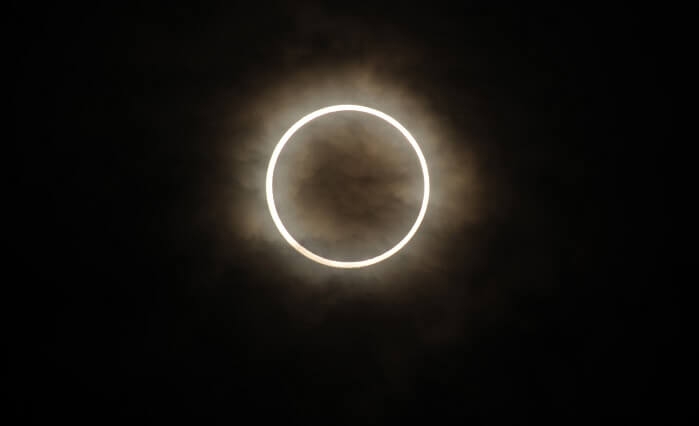 Annular Solar Eclipse[/caption]
Annular Solar Eclipse[/caption]
As the country is set to experience another Solar Eclipse on Thursday September 1, 2016, Nigerians have been warned by the National Space Research and Development Agency (NASRDA) to avoid observing it with their naked eyes.
An annular eclipse occurs when the Sun and Moon are exactly in line, but the apparent size of the Moon is smaller than that of the Sun.
This will make the Sun appear as a very bright ring, surrounding the dark disk of the Moon, thereby leading to darkening of the skies.
Advertisement
In a statement signed by the Head of Media and Corporate Communications of NASRDA, Dr. Felix Ale, the annular eclipse would be observed as a partial or near total eclipse across Nigeria with Abuja the Federal Capital Territory expected to be about 60 per cent.
“The annular eclipse is expected to occur between 7:15 a.m. and 10:03 a.m. with slight variations in actual timing across the country.
“In Lagos, the first contact will occur about 7:15 a.m. while the maximum eclipse will occur around 8:30 a.m. and will end by 10:03 a.m.
“The eclipse is expected to commence in Abuja around 7:17 a.m., with maximum eclipse to be recorded about 8:32 a.m. and the eclipse will end around 10:00 a.m.”
Advertisement
Recall that Nigeria last saw a total solar eclipse on September 25, 2015, and is also expected to experience a penumbral lunar eclipse in February 2017.


